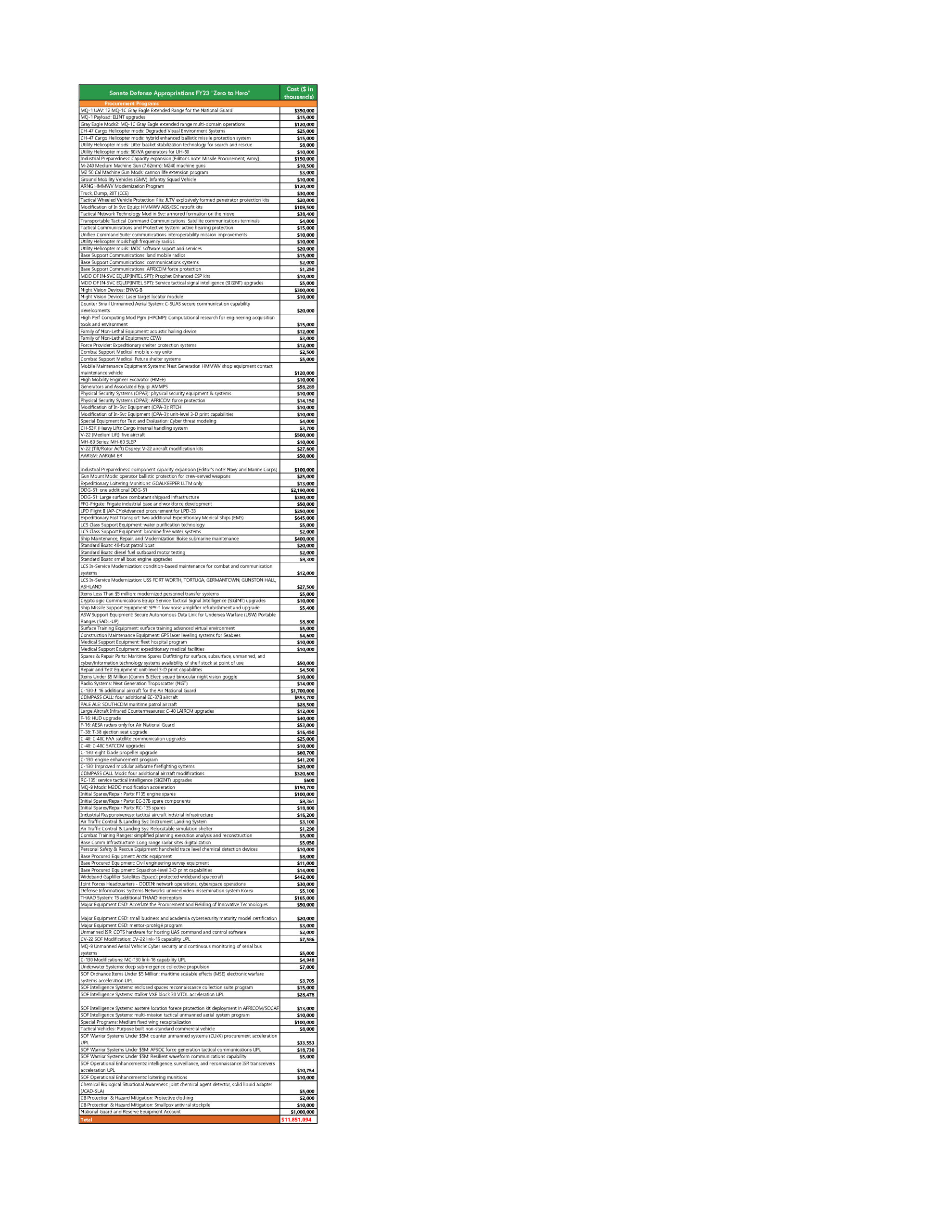We’ve got our tabulation of this year’s “Zero to Hero” in the Pentagon spending bill portion of the Omnibus. This is all the Procurement programs that didn’t appear in this year’s Pentagon’s budget request but that either the House or Senate Appropriations Committee insisted on funding.
The conference committees where lawmakers meet to “compromise” are full of lawmakers who don’t know the meaning of the term. No, “compromising” over the two versions of the Pentagon appropriations bill are now simply exercises in addition. Never subtraction. Basically, the two charts of items in each chamber’s bill that weren’t in the Pentagon’s budget request are added together, slapped into the conference report, and called a “compromise.”
See the Merriam-Webster definition of compromise, “something intermediate between or blending qualities of two different things.” That’s definitely not what went on this year regarding Pentagon spending.
Once the Pentagon topline was reset to $858 billion in a “compromise” between lawmakers and President Biden, it was a mad rush to find ways to spend that money. And the rush included taking virtually everything off the lists produced by the two Appropriations Committees and jamming them into the final Omnibus spending bill.
The House Appropriations Committee Zero to Hero list for procurement programs was a modest $1.3 billion. The Senate Appropriations Committee Zero to Hero programs for procurement was, by comparison, a whopping $5.4 billion. And for further comparison, the Fiscal Year 2022 Omnibus list of procurement programs that weren’t in the President’s budget request but still got funded totaled $2.8 billion.
Now, compare those three numbers to the procurement programs in the final Zero to Hero list for the Fiscal Year 2023 Omnibus appropriations bill, which total $11.8 billion.

Color us gobsmacked. If you add $1.3 billion and $5.4 billion, you wind up at $6.7 billion. Even that could hardly be called a “compromise.” But the final number of $11.8 billion is almost twice the sum of the two sets of procurement adds.
This way lies madness. It may be a direct result of the institutionalization of the pernicious practice of Unfunded Priorities Lists (UPLs). If you add up all of those lists that we compiled this year, you get about $24 billion, according to the math done by our friends at the National Taxpayers Union. So, this is about half of that total. But not all, or even most, of the items on the UPLs could be considered “Zero to Hero” items. Many UPL items are for additional units of something (F-35s, for instance). And remember to get on our chart there must have been “zero” units requested by the Pentagon in their budget sent to Congress.
These results show the unrelenting upward pressure on the Pentagon topline is fed by both UPLs and Congressional action. That’s part of why we support legislation in the House and Senate to reform the UPL process. This bipartisan legislation is sponsored by Senators Warren (D-MA), Braun (R-IN), Lee (R-UT), and King (I-ME) in the Senate and led by Reps. Jayapal (D-WA) and McClintock (R-CA) in the House. It can’t come soon enough.











Get Social